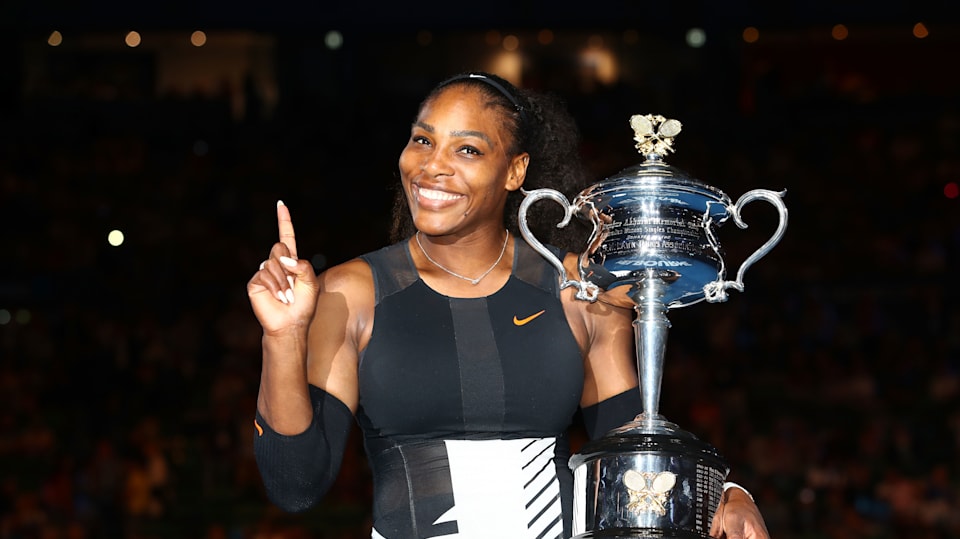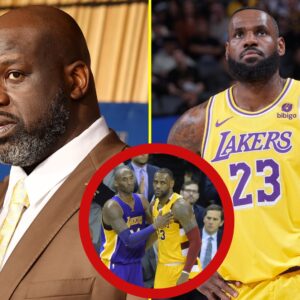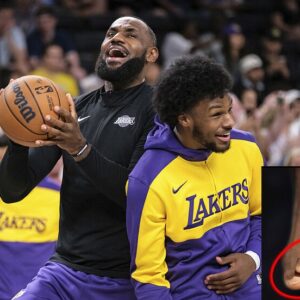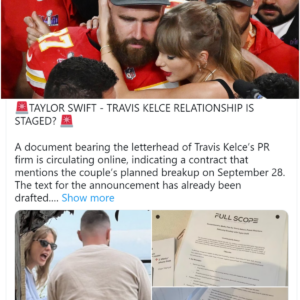On a sticky Friday night in early September of 2022, you could argue that Arthur Ashe Stadium at the US Open had never been louder, with some 23,000 roaring their support for Serena Williams as she contested what would ultimately be her final professional tennis match.
It was 23 years nearly to the day since Williams, then just 17, had won her maiden major title at the 1999 US Open, the first of what would be a history-making 23 Grand Slam titles, the most in the modern era among women.
As Williams waved farewell to the Queens crowd and to the sport that she had changed forever over two-and-a-half decades, she harkened back to the beginning chapters of her unlikely path, thanking her parents – Oracene Price and Richard Williams – for what they had created: “It all started with my parents,” she said on court through tears. “And they deserve everything.”
But while father Richard had famously touted his daughters Serena and Venus Williams to be future world No.1s, their impact across the game, with 48 major titles and five Olympic golds between them, will be felt for generations to come.
Their one-name status on a global level has helped to spark the next (and next) generation of Black champions from the U.S., including major winners Coco Gauff and Sloane Stephens as well as Top 10 stars Madison Keys and Frances Tiafoe – among others.
“They’re the reason why I have this trophy today, to be honest,” Gauff said in 2023 of Venus and Serena after winning her own maiden US Open. “They have allowed me to believe in this dream… all the things that they had to go through, they made it easier for someone like me to do this.”
By the time Serena walked off Arthur Ashe Stadium that night in 2022, her impact wasn’t just on Black players or aspiring tennis champions: She had become a force across sport as a whole – as well as a cultural symbol for what an unbending will to win and what plain hard work can make happen. For anyone.
Serena Williams: The little sister that could
The family Williams origin story is a well-known one: After Richard, their father, watched Virginia Ruzici win the 1978 Roland-Garros title and receive a winner’s cheque of $20,000, he set out for his two youngest daughters, Venus and Serena, to become tennis champions themselves.
What ensued was what many have called the most unlikely sport story of all time: Two Black sisters from Compton, California, zig-zagging their way onto the professional women’s tennis tour to become iconic champions – just as their father had predicted.
“[There] are the four qualities all champions [have], doesn’t matter how old or how young they are,” said Richard Williams in 1999 at the Miami Open, after Venus and Serena faced off in a final for the first time. “Venus and Serena demonstrated that the first time we went out [on court]. I knew they were champions.”
After Serena won that aforementioned first major in the family in 1999, it was actually Venus who dominated over the next couple of years on tour, claiming the 2000 and 2001 titles at both Wimbledon and the US Open, while also winning women’s singles gold at Sydney 2000, where she and Serena would pair up for the Olympic doubles title.
But years of being little sister eventually served Serena on court, too: Between 2002 and 2003 she won her first (of two) “Serena Slams”, capturing four consecutive majors and launching herself to world No.1, a position she would hold at various times over the next 15 years for some 319 weeks.
Serena’s lasting legacy – and what comes next
But to contextualise what Serena did on court is impossible without also reflecting on her out-sized impact off the court, too. For much of the mid-2000s, Serena – who had claimed five of eight majors between 2002-03 – won just two Grand Slams from 2004 to 2007, often criticised for not playing enough tennis.
She was “moonlighting outside of tennis”, explained TIME Magazine in 2022. That moonlighting included acting, a reality series with Venus, magazine covers, music videos and much, much more.
While some questioned the off-court schedule as “distracting”, Williams was re-writing the playbook, a move that would be bolstered by her longevity and late-career successes, including a pair of Olympic golds as well as 10 major singles titles after the age of 30 – an age that many previous superstars had hung up their rackets.
Later in her career, Williams approached a myriad of social issues head on, including in 2015 when she returned to the WTA 1000 at Indian Wells 14 years after she was booed by a largely White crowd in an episode that oozed with racism.
“I just felt like it was time,” Williams told reporters upon return, making a run to the semi-finals. “[This] was a wonderful day for me, for women’s tennis, for tennis in general… and for everyone.”
Williams even sought to change the culture around “retirement” in pro sports, writing in Vogue in the summer of 2022 that she was “evolving away” from tennis: “I’m here to tell you that I’m evolving away from tennis,” she wrote. “Toward other things that are important to me.”
What are those things? For now, it includes motherhood, investing in female- and BIPOC-owned business ventures, working with her sponsorship partners, and living life away from the tennis grind, having given birth to a second daughter, Adira, in August of 2023.
“For me, tennis has been such a huge part of my life, I can’t imagine not being involved in tennis,” she said in her final US Open press conference. “I don’t know what that involvement is yet. I think it means so much to me in my life, and I’ve had so many amazing moments, that I don’t see a future without it.
“What’s my involvement? I have no idea.”
News
Tennis player Ons Jabeur tearfully bids farewell to the tennis world as she announces her first pregnancy with husband Karim Kamoun and confirms her retirement
Ons Jabeur Announces Retirement from Tennis Following Pregnancy News In a heartfelt announcement that sent ripples through the tennis world, Ons Jabeur, the celebrated Tunisian…
Jelena Djokovic raised the alarm: “A lot of people want my marriage to be destroyed and broken with my husband Novak. If you’re one of my genuine fans and you want my marriage to survive and stable, let me see that affectionate YES from you.”
He has become arguably the greatest tennis player of all time and he has a chance to win a 24th major at the ongoing US Open. Many…
Justin Timberlake Passed On His NSYNC Curls to His and Jessica Biel’s Youngest Son
“He’s gonna be me.” -Justin Timberlake, probably. PHOTO: JESSICA BIEL/INSTAGRAM It’s only fitting that on the first day of May, there is Justin Timberlake news to report (cue…
Travis Kelce was spotted by fans wearing an alleged TWIN outfit with ex-girlfriend Kayla Nicole while attending the Kentucky Derby Haf
Travis Kelce was spotted by fans wearing an alleged TWIN outfit with ex-girlfriend Kayla Nicole while attending the Kentucky Derby.. Travis Kelce has officially arrived at the 2024 Kentucky…
Reba McEntire Holds Hands with Her 6-Year-Old Mini-Me Son as Her 1996 ACMs Date Haf
McEntire and her then-little one, Shelby, proudly took on the red carpet together. Reba McEntire has had a mini-me since the ’90s! When the “Fancy” singer attended the Academy…
Historic Millington general store Justin Timberlake made famous is for sale
Millington, Tenn. –A nearly century-old general store that megastar and Millington native Justin Timberlake put on the map is on the market. The Shelby Forest General Store, located less than…
End of content
No more pages to load












